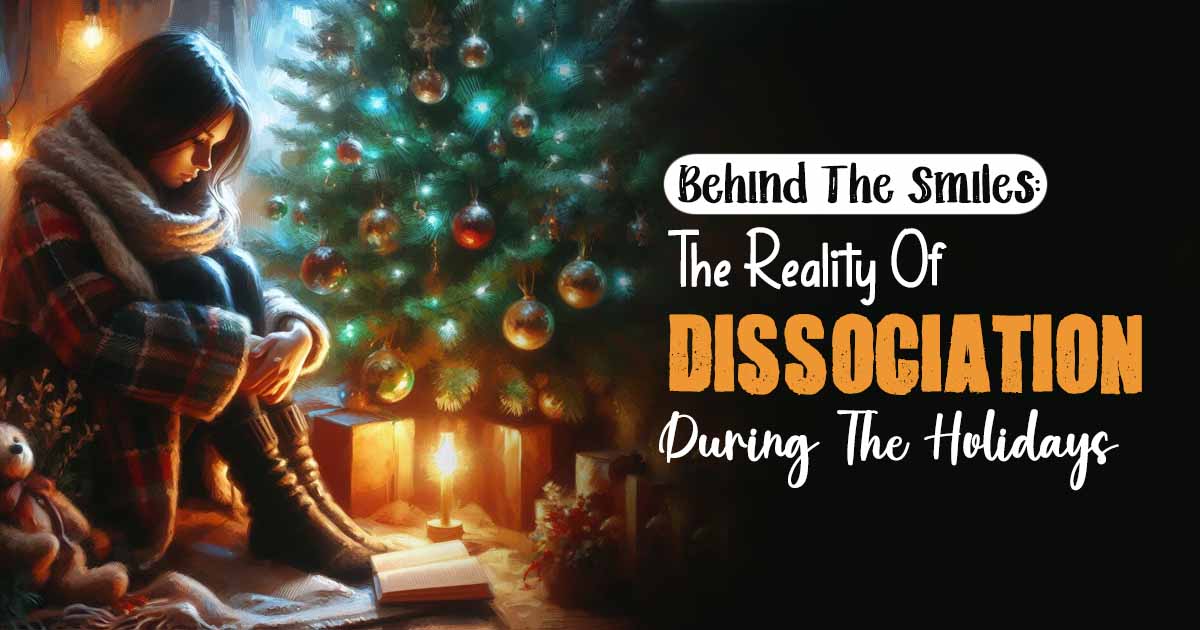Dissociation popularly refers to a state where an individual disconnects from their reality, thoughts, feelings, memories, or sense of identity. It is often considered a mental defense and coping mechanism in response to overwhelming stress, trauma, or distressing situations.
While dissociation can manifest in various forms (such as amnesia, derealization, or depersonalization) that have been clinically diagnosed over the years, its prevalence during the holiday season is a topic that deserves closer examination and redressal methods.
Understanding Dissociation During The Holidays
The holiday season is traditionally associated with joy, warmth, and togetherness. However, for some individuals, it can be a trigger for heightened stress, emotional turmoil, and traumatic memories. Dissociation during the holidays can also be a defense mechanism to shield oneself from overwhelming emotions or memories associated with past events.
Moreover, the pressure to conform to societal expectations of merriment, coupled with potential reminders of loss or trauma, can create an environment for an individual to undergo dissociative experiences.
Signs You Are Experiencing Dissociation During The Holidays
Identifying the signs of dissociation during the holiday season can be crucial for both the individual experiencing it and those around him/her for redressal:
- Emotional numbness or detachment from festive cheer
- Memory gaps or episodes of forgetfulness during holiday gatherings
- Derealization of the festive atmosphere as surreal or artificial
- Depersonalization or feeling disconnected from one’s own body or identity
- Avoidance behavior as a means of self-preservation
- Experiencing heightened anxiety or panic attacks triggered by holiday-related stressors
- A desperate desire to escape from the gathering or other social events
Impact Of Dissociation During The Holidays
The impact of dissociation during the holidays can extend beyond individual well-being, affecting relationships, family dynamics, and overall holiday experiences. For the person experiencing dissociation, it may lead to a sense of isolation, as they struggle to connect with the festive atmosphere and those around them. Additionally, loved ones may find it challenging to understand or relate to the emotional distance, potentially causing strain in relationships.
Furthermore, the internal conflict between societal expectations of holiday joy and the individual’s struggle with dissociation can exacerbate feelings of guilt and shame. This emotional burden may intensify the dissociative experiences, creating a cycle that is difficult to break without proper understanding and support. In most cases, dissociation during the holidays may signal graver underlying mental health conditions like a full-blown dissociative identity disorder.
Addressing Dissociation During The Holidays
Acknowledging and addressing dissociation during the holidays is a crucial step toward fostering a more supportive and inclusive environment. Here are some strategies for individuals and those around them to address dissociation during the holidays:
- Self-Awareness: Recognize signs of dissociation, prioritize self-awareness.
- Communication: Openly share feelings and set boundaries with friends and family.
- Professional Help: Seek therapy or counseling if dissociation significantly impacts daily life.
- Educate Loved Ones: Help friends and family understand dissociation as a coping mechanism.
- Adapt Traditions: Modify or create new, less triggering holiday rituals for a more comfortable experience.
Dissociation during the holidays is a complex and often overlooked aspect of mental health. By fostering awareness, understanding the signs, and implementing supportive strategies, individuals and their loved ones can navigate the holiday season with greater compassion and resilience. Ultimately, a more inclusive approach to the diverse emotional experiences during this time can contribute to a healthier and more meaningful holiday celebration for everyone involved.


























